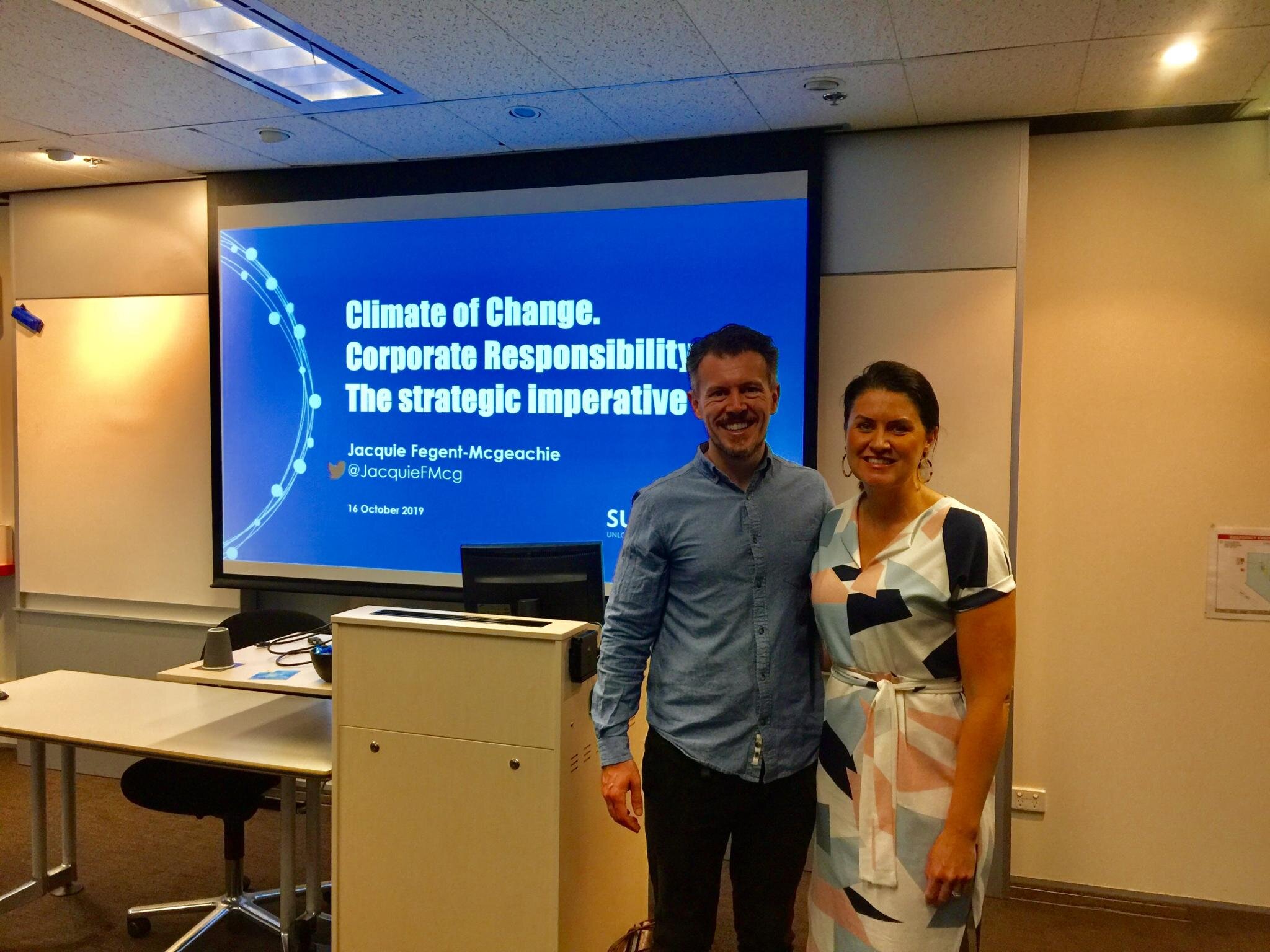Time to innovate your view of Corporate Responsibility
Jacquie Fegent-Mcgeachie led a workshop for our chapter on the Climate of change: Corporate responsibility the new strategic imperative. Jacquie reflects on the key themes and outcomes from the workshop – a sold out event and one of four member-only workshops the chapter has hosted this year.
Following the recent corporate scandals surrounding the Royal Commission’s into Misconduct in the Banking, Superannuation and Financial Services Industry and into Aged Care, I was asked by the International Association of Business Communicator’s NSW Chapter to present on corporate responsibility, how it was changing and why. Here are a few excerpts.
The Era of Stakeholder Capitalism
Communications professional play a critical role in organisations connecting with stakeholders, building relationships and trust in order to protect and enhance the reputation of their organisations. Doing this role well and helping their respective organisations to interpret the external environment has never been more important with trust in business and cynicism in institutions on the rise.
The recent Business Roundtable declaration makes clear that we have entered the age of “stakeholder capitalism” where companies treat the interests of all stakeholders equally.
There are plenty of organisations who say they’re stakeholder centric putting the needs of customers and employees first (and other stakeholders, depending on the business). Yet when the rubber-hits-the-road, it becomes clear, based on decision-making that they’re not. This is a challenging space.
Pointing this out to leaders within your business is an important first-step in helping them become aware that their actions are not matching the intent, purpose or the values of the organisation, which done repeatedly will undermine the reputation, trust and integrity of the business and the leaders themselves.
Walk-the-walk and talk-the-talk
One of the challenges with stakeholder engagement is that there isn’t a one-size fits all approach. Some organisations can get caught in the trap of one-directional communication. The approach of: “Oh we send them all our press releases and we keep them informed”.
The assumption of stakeholder engagement is that you’re building or managing a relationship. The very definition of a relationship is that it’s two way. If the dominant approach of your organisation is to push information out, then it’s probably not creating an eco-system of trust and authenticity. Imagine if your friend just emailed or Facebooked with their news but never called to see how you’re doing. You’d question the friendship or assign them to the self-consumed friends list.
The point is pay attention to how the communication strategy is being presented. The approach should reflect the values and behaviour of your organisation. In-authentic communication and more spin over substance can damage your organisations reputation.
Measure your assumptions when it comes to social license
The challenging thing about reputation, credibility and trust which are all key ingredients for maintaining social license, is that it’s forever changing. It’s very difficult to manage what you don’t measure, so ensure that you research and assess your assumptions particularly if they’re informing strategic decisions. Track how community views in different geographies on social and environmental topics vary and change over time.
The view of the view is changing
The pace of change has accelerated, and the view of the view has changed, particularly in relation to the role that business plays in society. Some of the reasons for this include:
The rapid rate of technology adoption which has made sharing and accessing information a click away. We now live in an age of hyper-connectivity and peer-to-peer advocacy, and in the words of Rachel Botsman, “the era of institutional trust, taken in faith, kept in the hands of a few and operating behind closed doors, wasn’t designed for the digital age. It wasn’t designed for the age of radical transparency”.
Changing consumer expectations of business and the mainstreaming of environmental and community activism facilitated by social media.
The rise of investor pressure as the business case for pursing purpose and sustainability/Environmental, social and governance (ESG) becomes clear.
The system is also changing
I’m talking about the natural ecological system, in the form of anthropogenic climate change and technological systems changing with the uptake of artificial intelligence and robotics. These things together have led to an unprecedented scale of change which shows no sign of slowing.
Innovate your view of corporate responsibility and connect purpose with performance
What this means for corporate responsibility is that it should no longer be considered as a ‘nice to do’ and a program that sits as part of your company’s ‘good-news-bureau’. Rather environmental, social and governance risks and opportunities, along with stakeholder-centricity should sit at the heart of your organisation’s corporate strategy and be aligned with your organisations purpose and values. It’s no longer just about good intent, it’s about good behaviour, accountability, authenticity, transparency and leadership.
Savvy companies are connecting the dots, embedding consideration of ESG risks and opportunities into their organisations culture and innovating their business models. Unilever’s Sustainable Living’ brands grew 46% faster than their other brands and delivered 70% of its turnover growth.
If it’s time for you to reassess your view of corporate responsibility, your strategy, programming or stakeholder engagement either internally or externally then please reach out.
Jacquie Fegent-Mcgeachie is Founder and CEO of Sustainovate, a consultancy that helps organisations and individuals embed sustainability into their organisation, innovate, communicate and transform. She is the former Global Head of Sustainability Communication at consumer goods giant Kimberly-Clark, a lecturer at the Australian Graduate School of Management (AGSM) and Board Director of the Business Council for Sustainable Development Australia.
Contact: Jacquie@sustainovate.com.au



